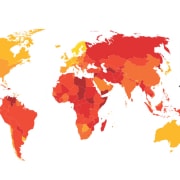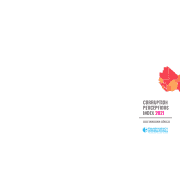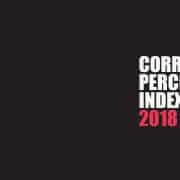|
Getting your Trinity Audio player ready...
|
Transparency International’s Corruption Perceptions Index (CPI) 2017, released today, shows just how difficult it is to advance on the global ranking of countries in relation to perceptions about levels of corruption in the public sector. South Africa’s score of 43 represents a drop of two points from 45 in 2016 – a marginal shift, it may seem, but the number is less important than the downward direction of change.
This is of particular concern given that the CPI just released reflects the outcome of surveys conducted in 2016, prior to the dismissal (for the second time) of former finance minister Pravin Gordhan, action relating to the Public Protector’s October 2016 State of Capture report, and the daily scandals and revelations of grand corruption that characterised 2017.
The index, which ranks 180 countries and territories by their perceived levels of public sector corruption according to experts and business people, uses a scale of zero to 100, where zero is highly corrupt and 100 is very clean. This year, the index found that more than two-thirds of countries score below 50, and in this context, South Africa continues to be in the company of those countries in the world considered to have a serious corruption problem.
As indicated above, the real spiral in the country began at the end of 2016, the year in which the survey was completed, when there was a marked escalation in revealing corruption, primarily through a robust civil society and media. The increased exposure of corrupt activities can be attributed to a more vocal and active citizenry, but despite these mounting calls for accountability, the lack of prosecution remains a major obstacle in the fight against corruption.
The continued impunity of our leaders has ensured that South Africa has not progressed beyond the low- to mid-40s on the index since Corruption Watch was launched in 2012. At that time, the score was 43 and has wavered over the years between 42 and 45, but is now back at where we were five years ago. This signals an alarming lack of progress in really improving our standing in a global context, in spite of ramped-up efforts to out the perpetrators of corruption.
Transparency International’s index drew conclusions regarding the relationship between corruption levels and the freedom enjoyed by civil society to operate and influence public policy. The analysis, which incorporates data from the World Justice Project, shows that most countries that score low for civil liberties also tend to score high for corruption.
David Lewis, executive director of Corruption Watch, commented: “It is our constitutional order, our independent courts, our robust, independent media and our vigilant civil society organisations that have prevented out descent into the abyss from which there is no return. It is those institutions plus the few in government that survived the Zuma administration intact, that have led to the tectonic political shifts that we have experienced in the recent past. These shifts are however not to be taken for granted. Now is the time to intensify our vigilance and our demands for accountable government.”
South Africa is ranked ninth in relation to other sub-Saharan African countries, and this year was overtaken by Senegal. Once again, Botswana topped the charts and the only newcomer in the top 10 this year is the Seychelles, with Ghana having conceded its position.
SUB-SAHARAN AFRICA – REGIONAL CPI TABLE
| COUNTRY | SCORE | RANK | |
| 1 | Botswana | 61 | 34 |
| 2 | Seychelles | 60 | 36 |
| 3 | Cabo Verde | 55 | 48 |
| 4 | Rwanda | 55 | 48 |
| 5 | Namibia | 51 | 53 |
| 6 | Mauritius | 50 | 54 |
| 7 | Sao Tome and Principe | 46 | 64 |
| 8 | Senegal | 45 | 66 |
| 9 | South Africa | 43 | 71 |
| 10 | Burkina Faso | 42 | 74 |
The index paints a similar picture of South Africa’s position in relation to the BRICS countries, as the 2016 results place China with a score of 41 (rank 77), India at 40 (81), Brazil at 37 (96) and Russia remaining at 29 (135). Russia’s continued position at the very bottom end remains a cause for concern.
The results for South Africa demonstrate that once again, its sound institutions – financial, judicial and others – protect the country, and the loudness of the voices raised in increasing numbers against corruption, also evidenced in the growing numbers of reports to Corruption Watch.
The real test, however, is in the success in bringing corrupt people to book, and the failure of the prosecutorial bodies to act independently and decisively on matters during this period. Until there is evidence of people not only losing their jobs, but doing jail time for their corrupt activities, the country will continue to be grouped amongst the most corrupt and unsavoury places in the world.
To access the CPI index, click here.
For more information:
Phemelo Khaas 083 763 3472 phemelok@corruptionwatch.org.za








